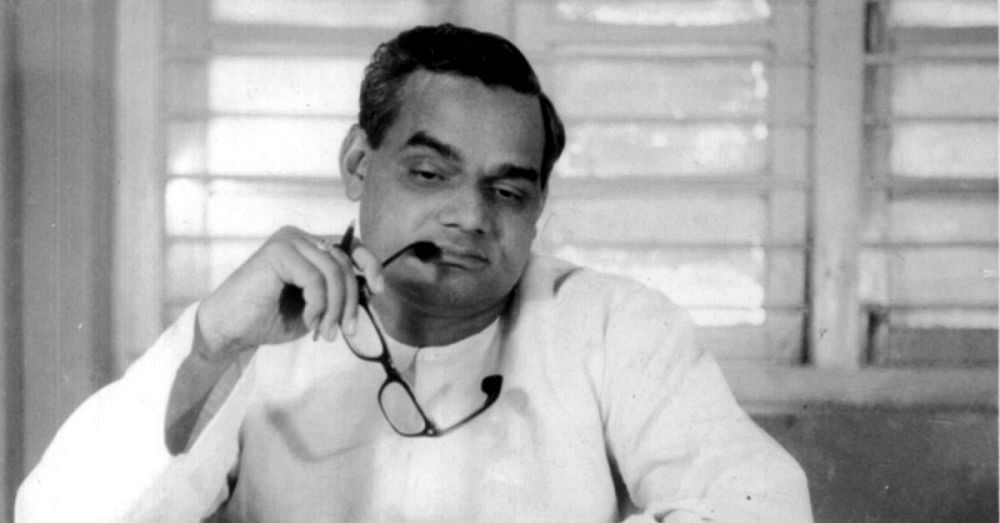This is the tribute Atal Bihari Vajpayee paid Jawaharlal Nehru, India’s first prime minister, after he passed away on 27 May, 1964.
Sir, a dream has been shattered, a song silenced, a flame has vanished in the infinite. It was the dream of a world without fear and without hunger, it was the song of an epic that had the echo of the Gita and the fragrance of the rose. It was the flame of a lamp that burnt all night, fought with every darkness, showed us the way, and one morning attained Nirvana.
Death is certain, the body is ephemeral. The golden body that yesterday we consigned to the funeral pyre of sandalwood was bound to end. But did death have to come so stealthily? When friends were asleep and guards were slack, we were robbed of a priceless gift of life.
Bharat Mata is stricken with grief today — she has lost her favourite prince. Humanity is sad today — it has lost its devotee. Peace is restless today — its protector is no more. The down-trodden have lost their refuge. The common man has lost the light in his eyes. The curtain has come down. The leading actor on the stage of the world displayed his final role and taken the bow.
Also read: Atal Bihari Vajpayee: Poet-politician and one of India’s most charismatic leaders
In the Ramayana, Maharashi Valmiki has said of Lord Rama that he brought the impossible together. In Panditji’s life, we see a glimpse of what the great poet said. He was a devotee of peace and yet the harbinger of revolution, he was a devotee of non-violence but advocated every weapon to defend freedom and honour.
He was an advocate of individual freedom and yet was committed to bringing about economic equality. He was never afraid of a compromise with anybody, but he never compromised with anyone out of fear. His policy towards Pakistan and China was a symbol of this unique blend. It had generosity as well as firmness. It is unfortunate that this generosity was mistaken for weakness, while some people looked upon his firmness as obstinacy.
I remember I once saw him very angry during the days of the Chinese aggression when our Western friends were trying to prevail upon us to arrive at some compromise with Pakistan on Kashmir. When he was told we would have to fight on two fronts if there was no compromise on the Kashmir problem, he flared up and said we would fight on both fronts if necessary. He was against negotiating under any pressure.
Also read: The life and times of Atal Bihari Vajpayee
Sir, the freedom of which he was the general and protector is today in danger. We have to protect it with all our might. The national unity and integrity of which he was the apostle is also in danger today. We have to preserve it at any cost. The Indian democracy he established, and of which he made a success is also faced with a doubtful future. With our unity, discipline and self-confidence we have to make this democracy a success.
The leader is gone, the followers remain. The sun has set, now we have to find our way by the light of the stars. This is a highly testing time. If we all could dedicate ourselves to the great ideal of a mighty and prosperous India that could make an honourable contribution to world peace for ever, it would indeed be a true tribute to him.
The loss to Parliament is irreparable. Such a resident may never grace Teen Murti again. That vibrant personality, that attitude of taking even the opposition along, that refined gentlemanliness, that greatness we may not again see in the near future. In spite of a difference of opinion we have nothing but respect for his great ideals, his integrity, his love for the country and his indomitable courage.
With these words, I pay my humble homage to that great soul.
Atal Bihari Vajpayee, then a Rajya Sabha member, made the statement on the floor of the Rajya Sabha after Prime Minister Jawaharlal Nehru’s death.
